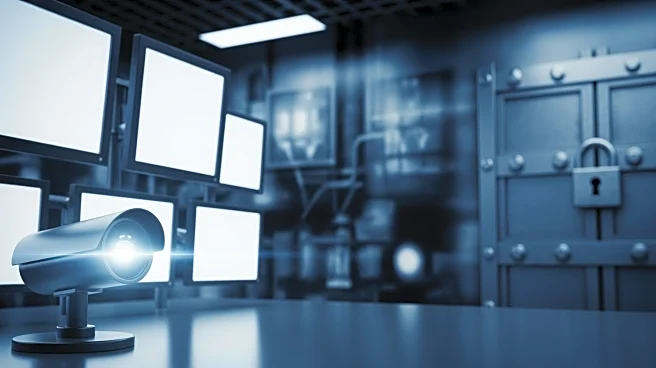Rapid Read • 9 min read
China has implemented a nationwide restriction on artificial intelligence during exam periods to prevent students from cheating. This move, led by the Chinese Communist Party, aims to ensure that students engage in genuine learning experiences rather than relying on AI tools. During the gaokao exams, major tech companies like Alibaba, ByteDance, Tencent, and Moonshot disabled features that could assist in cheating, such as photo-upload functions that solve exam questions. This decision reflects China's approach to technology regulation, prioritizing societal interests over technological advancement. The restriction has sparked discussions in the U.S. about the impact of AI on education, with experts suggesting that American students may be experiencing learning losses due to reliance on AI.
AD
The restriction of AI in China highlights a significant difference in how countries approach technology in education. In the U.S., the use of AI in schools is widespread, raising concerns about its impact on students' critical thinking skills. A study from MIT indicates that AI can degrade these skills, as students tend to outsource their thinking to AI tools. This has implications for the future workforce, as students may lack essential problem-solving abilities. The debate also touches on the broader issue of technology governance, with experts arguing that effective regulation could lead to smarter citizens. The U.S. faces a challenge in balancing technological innovation with educational integrity, as unchecked AI use could disadvantage American students in the global landscape.
The discussion around AI in education is likely to continue, with potential calls for regulatory measures in the U.S. to address the educational impact of AI. Lawmakers may consider implementing safeguards similar to those in China to protect students from over-reliance on technology. Educational institutions might explore alternative teaching methods that emphasize critical thinking and problem-solving without the aid of AI. As the debate unfolds, stakeholders in education and technology will need to collaborate to find solutions that ensure students benefit from technological advancements without compromising their learning experiences.
The ethical implications of AI use in education are profound, as it raises questions about fairness and equity in learning. The reliance on AI tools could widen the gap between students who have access to technology and those who do not, potentially exacerbating educational inequalities. Additionally, the cultural impact of technology on youth development is significant, as excessive use of AI and social media can affect mental health and social skills. The long-term effects of these technologies on society and the workforce are still uncertain, prompting a need for careful consideration and proactive measures to address potential challenges.
AD
More Stories You Might Enjoy











